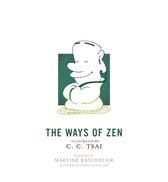The Spirit of Contradiction in Christianity and Buddhism
Afbeeldingen
Sla de afbeeldingen overArtikel vergelijken
Auteur:
Hugh Nicholson
- Engels
- Hardcover
- 9780190455347
- 17 maart 2016
- 318 pagina's
Samenvatting
In this book, Hugh Nicholson argues that seemingly counterintuitive and abstract religious concepts, such as the Christian Trinity and the Buddhist concept of No-self, have developed out of social identity processes - more specifically, as a result of hegemonic struggles and intra- and inter-religious rivalry.
In The Spirit of Contradiction in Christianity and Buddhism, Hugh Nicholson examines the role of social identity processes in the development of two religious concepts: the Christian doctrine of Consubstantiality and the Buddhist doctrine of No-self. Consubstantiality, the claim that the Son is of the same substance as the Father, forms the basis of the doctrine of the Trinity, while No-self, the claim that the personality is reducible to its impersonal physical and psychological constituents, is a defining tenet of Theravada Buddhism. Both doctrines are massively counterintuitive in that they violate our basic assumptions and understandings about the world. While cognitive approaches to the study of religion have explained why these doctrines have difficulty taking root in popular religious thought, they are largely silent on the question of why these concepts have developed in the first place. Nicholson aims to fill this gap by examining the historical development of these two concepts. Nicholson argues that both of these doctrines were the products of hegemonic struggles in which one faction tried to get the upper hand over the other by maximizing the contrast with the dominant subgroup. Thus the "pro-Nicene" theologians of the fourth century developed the concept of Consubstantiality in an effort to maximize, against their "Arian" rivals, the contrast with Christianity's archetypal "other," Judaism. Similarly, the No-self doctrine stemmed from an effort to maximize, against the so-called Personalist schools of Buddhism, the contrast with Brahmanical Hinduism, symbolized by its doctrine of the deathless self. In this way, Nicholson demonstrates how, to the extent that religious traditions are driven by social identity processes, they back themselves into doctrinal positions that they must then retrospectively justify.
In The Spirit of Contradiction in Christianity and Buddhism, Hugh Nicholson examines the role of social identity processes in the development of two religious concepts: the Christian doctrine of Consubstantiality and the Buddhist doctrine of No-self. Consubstantiality, the claim that the Son is of the same substance as the Father, forms the basis of the doctrine of the Trinity, while No-self, the claim that the personality is reducible to its impersonal physical and psychological constituents, is a defining tenet of Theravada Buddhism. Both doctrines are massively counterintuitive in that they violate our basic assumptions and understandings about the world. While cognitive approaches to the study of religion have explained why these doctrines have difficulty taking root in popular religious thought, they are largely silent on the question of why these concepts have developed in the first place. Nicholson aims to fill this gap by examining the historical development of these two concepts. Nicholson argues that both of these doctrines were the products of hegemonic struggles in which one faction tried to get the upper hand over the other by maximizing the contrast with the dominant subgroup. Thus the "pro-Nicene" theologians of the fourth century developed the concept of Consubstantiality in an effort to maximize, against their "Arian" rivals, the contrast with Christianity's archetypal "other," Judaism. Similarly, the No-self doctrine stemmed from an effort to maximize, against the so-called Personalist schools of Buddhism, the contrast with Brahmanical Hinduism, symbolized by its doctrine of the deathless self. In this way, Nicholson demonstrates how, to the extent that religious traditions are driven by social identity processes, they back themselves into doctrinal positions that they must then retrospectively justify.
Productspecificaties
Wij vonden geen specificaties voor jouw zoekopdracht '{SEARCH}'.
Inhoud
- Taal
- en
- Bindwijze
- Hardcover
- Oorspronkelijke releasedatum
- 17 maart 2016
- Aantal pagina's
- 318
- Illustraties
- Nee
Betrokkenen
- Hoofdauteur
- Hugh Nicholson
- Hoofduitgeverij
- Oxford University Press Inc
Overige kenmerken
- Extra groot lettertype
- Nee
- Product breedte
- 165 mm
- Product hoogte
- 32 mm
- Product lengte
- 254 mm
- Studieboek
- Ja
- Verpakking breedte
- 164 mm
- Verpakking hoogte
- 31 mm
- Verpakking lengte
- 240 mm
- Verpakkingsgewicht
- 590 g
EAN
- EAN
- 9780190455347
Je vindt dit artikel in
- Categorieën
- Taal
- Engels
- Boek, ebook of luisterboek?
- Boek
- Beschikbaarheid
- Leverbaar
- Studieboek of algemeen
- Algemene boeken
Kies gewenste uitvoering
Kies je bindwijze
(2)
Prijsinformatie en bestellen
De prijs van dit product is 84 euro en 99 cent.
2 - 3 weken
Verkoop door bol
- Prijs inclusief verzendkosten, verstuurd door bol
- Ophalen bij een bol afhaalpunt mogelijk
- 30 dagen bedenktijd en gratis retourneren
- Dag en nacht klantenservice
Shop dit artikel
Rapporteer dit artikel
Je wilt melding doen van illegale inhoud over dit artikel:
- Ik wil melding doen als klant
- Ik wil melding doen als autoriteit of trusted flagger
- Ik wil melding doen als partner
- Ik wil melding doen als merkhouder
Geen klant, autoriteit, trusted flagger, merkhouder of partner? Gebruik dan onderstaande link om melding te doen.











